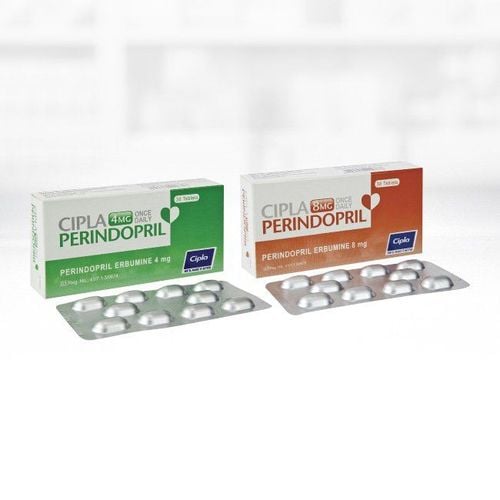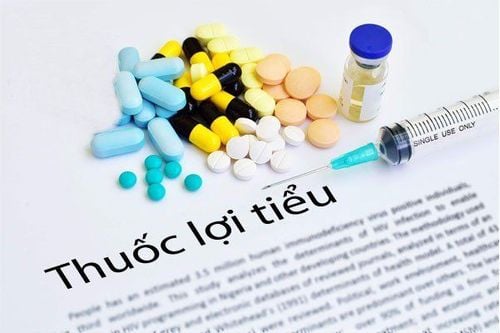This is an automatically translated article.
Corosan is a class of AngII receptor antagonists for the treatment of hypertension, myocardial infarction and heart failure in patients with cardiovascular disorders. So, how does Corosan work and how does it work? The following article will provide more information about the effects and usage of Corosan.
1. What is Corosan?
Corosan is a prescription drug, used to treat high blood pressure and prevent cardiovascular complications. Corosan is available in the form of film-coated tablets, blister packaging, each blister contains 7 tablets, a box includes 4 blisters.
In one Corosan tablet contains Valsartan 80 mg ; This drug helps block Angotensin II receptors, this is a type of receptor found in tissues in the body, but when it binds to blood vessels, it will cause vasoconstriction, poor blood circulation and possibly high blood pressure.
2. What effects does Corosan have?
Corosan is made up of the main active ingredient, Valsartan 80 mg and other excipients, just enough for one tablet. This is a specific Angiotensin II receptor antagonist, which controls the activity of this receptor and prevents the Ang II receptor from sticking to blood vessels causing vasoconstriction.
Effects of the drug Corosan include:
Lowering blood pressure for patients with high blood pressure in adults, children and adolescents from 6 to 18 years of age Treatment of adults with symptoms of heart failure or disorders Left ventricular function, sequelae of myocardial infarction Symptomatic treatment for people with heart failure who cannot use enzyme inhibitors. As a concurrent drug with beta-blockers, acting as an ACE inhibitor. Corosan is indicated for high blood pressure and cardiovascular disorders such as heart failure, myocardial infarction. Besides helping to treat symptoms and sequelae after a heart attack.
3. How to use the drug Corosan
3.1. How to use Corosan Patients take drugs orally. Swallow Corosan tablets whole with an appropriate amount of liquid, such as cooled boiled water. Patients should not manipulate the medicinal product such as breaking, chewing, or crushing the drug, as these behaviors may result in loss of the pharmacodynamics of the product.
Patients should follow the recommended dosage and instructions from the doctor, absolutely do not adjust the dose of oral medication by yourself.
3.2. Dosage of the drug Corosan Treatment of hypertension for adults: Use from 1 to 2 tablets at a time as the recommended dose prescribed. The maximum dose used per day for this subject is 320 mg, ie 4 tablets a day; or consider adding a diuretic. Prevention and survival in patients with myocardial infarction: The recommended dose for this population is from 40 mg to a maximum of 160 mg twice daily. The dose may be reduced when hypotension or renal failure occurs. Increase survival time and reduce vasoconstriction in heart failure: Start from a minimum dose of 40 mg and gradually increase the dose to a maximum of 160 mg daily in divided doses. 3.3. Treatment in case of forgetting, overdosing Missed dose:
Patients should take Corosan as soon as they remember. If it is almost time for your next dose to remember, skip the missed dose and take the medicine as usual. Do not take a double dose of Corosan to make up for the missed dose.
Overdose:
Symptoms of Corosan overdose have been reported as hypotension, decreased alertness, circulatory collapse and shock. Symptomatic treatment of the inability to filter valsartan or remove it by dialysis may be possible.
In the event of hypotension due to overdose, place the patient in the supine position, administer saline intravenously.
3.4. Contraindications to the drug Corosan Absolutely do not use with patients with hypersensitivity or irritation to Valsartan or any other drug or ingredient in the drug. Contraindicated in patients with severe liver failure, cirrhosis due to hepatobiliary disease or cholestasis. Do not use in children under 6 years of age Patients with renal artery stenosis or severe renal impairment should not use Corosan Patients with galactose intolerance or glucose-galactose malabsorption should not use this medicine Patients with a history of edema circuit do not use this drug Use caution when used for women who are pregnant or suspected of becoming pregnant.
4. Note when taking Corosan
4.1 Corosan side effects Corosan will cause some unwanted side effects on the organ systems in the body. These can include disorders such as:
Blood and lymphatic system disorders: pancytopenia, neutropenia and thrombocytopenia Metabolic and nutritional disorders: causing allergic reactions such as rash itching, hives,... Respiratory disorders, digestive disorders, hepatobiliary disorders,... If you experience any side effects while taking Corosan, please inform your treating doctor. for alternative treatment options.
4.2 Corosan Drug Interactions Co-administration of Corosan with antipsychotics is not recommended.
Valsartan should not be used with drugs containing potassium because it may increase serum potassium.
Use caution when taking non-steroidal anti-inflammatory drugs together with Corosan.
Patients tell their medical history and allergy symptoms to the doctor to have a basis to decide whether to use Corosan with other drugs or not.
4.3 Storing Corosan Drugs Store Corosan in a dry place, keep in the manufacturer's packaging, protect from light
Suitable storage temperature for Corosan is between 15 and below 30 degrees Celsius
Do not use Corosan after the expiry date printed on the package.
Keep medicine out of reach of children and pets.
Hope the article has helped you know more about the use and dosage of Corosan. This is a prescription drug specifically for high blood pressure and treatment for cardiovascular complications. Follow your doctor's instructions and carefully read the instructions for use in the manufacturer's leaflet before use.
Please dial HOTLINE for more information or register for an appointment HERE. Download MyVinmec app to make appointments faster and to manage your bookings easily.













